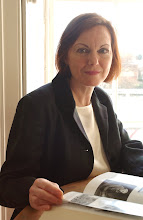
 Some time ago Jenny Woolf contacted me to draw my attention to a book by Thomas Burke (1886-1945) entitled Living in Bloomsbury. London: G. Allen & Unwin, 1939. Although the book is now out of print, it’s possible to buy it very inexpensively through Amazon and I’ve just placed an order for a second edition (1947) costing £5.00.
Some time ago Jenny Woolf contacted me to draw my attention to a book by Thomas Burke (1886-1945) entitled Living in Bloomsbury. London: G. Allen & Unwin, 1939. Although the book is now out of print, it’s possible to buy it very inexpensively through Amazon and I’ve just placed an order for a second edition (1947) costing £5.00.Thomas Burke was a prolific author of fiction and non-fiction, publishing his first short story, ‘The Bellamy Diamonds’ in 1901 at the age of fifteen. He was born in Clapham, South London, and seems to have been orphaned (or at least became fatherless) early in life, ending up in a home for middle-class poor but ‘respectable’ boys. Much of his non-fiction work about London, particularly the East End, is considered to be romanticised but a number of his stories captured the imagination of the burgeoning film industry and were adapted for Hollywood. D W Griffith, for example, used Burke’s short story ‘The Chink and the Child’ from Limehouse Nights (1917) as basis for his silent movie, ‘Broken Blossoms’ (1919), and Charlie Chaplin derived ‘A Dog’s Life’ (1918) from the same book.
I’m not certain whether Burke ever lived in Bloomsbury but he certainly died here – at the Homeopathic Hospital, Queen Square, on 22 September 1945, at the very end of World War II.
